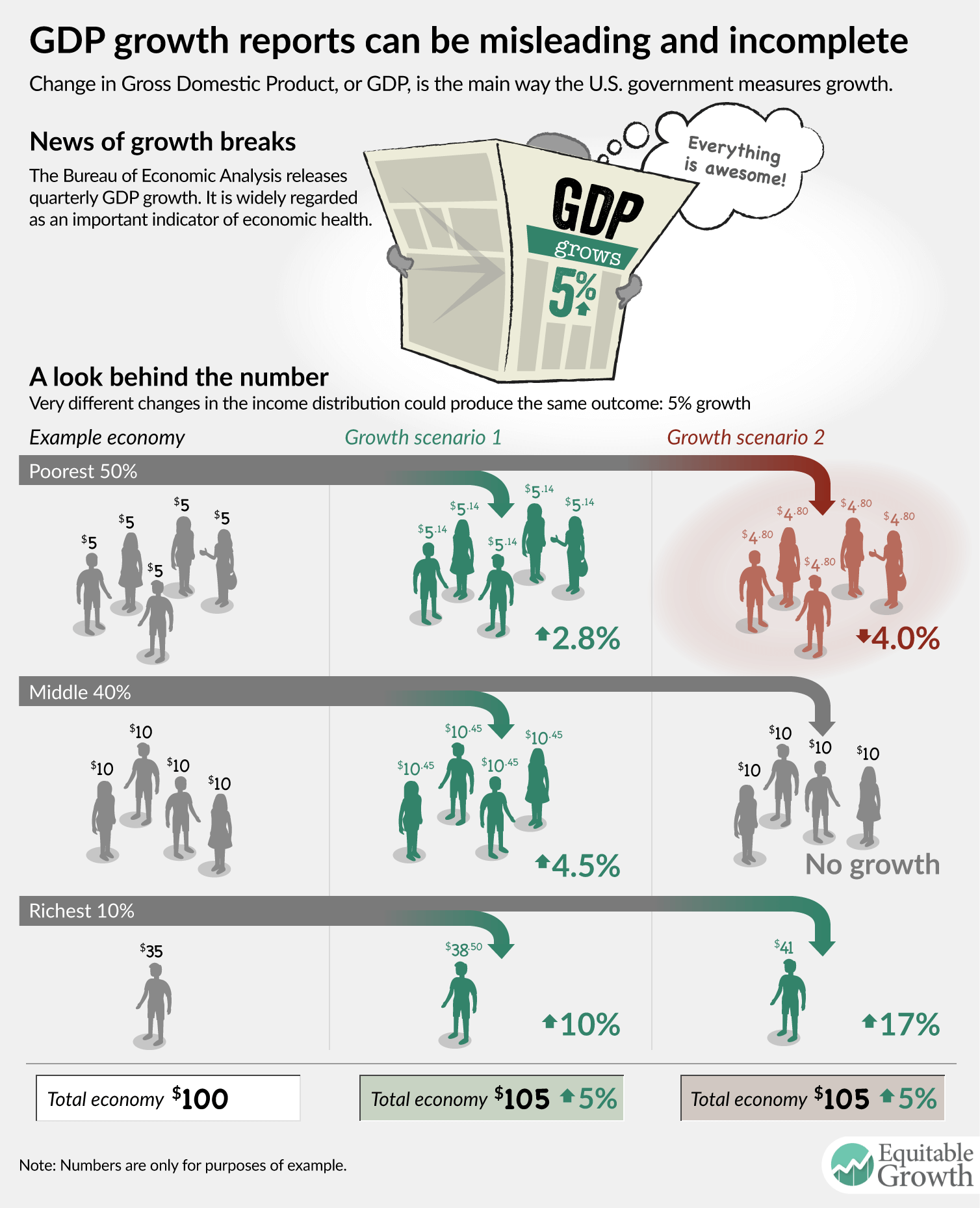Weekend reading: The “measurement matters” edition
This is a weekly post we publish on Fridays with links to articles that touch on economic inequality and growth. The first section is a round-up of what Equitable Growth published this week and the second is the work we’re highlighting from elsewhere. We won’t be the first to share these articles, but we hope by taking a look back at the whole week, we can put them in context.
Equitable Growth round-up
The United States needs progressive tax policies that will support increased investment in children, infrastructure, and public health, argue Heather Boushey and Greg Leiserson in a recent op-ed in Democracy.
As the unemployment rate has fallen over the past several years, inflation has remained subdued. Whether that relationship between unemployment and inflation—measured by the Phillips Curve—remains the same, or flat in Phillips Curve parlance, is the question front of mind for U.S. central bankers explains Nick Bunker.
GDP growth has become synonymous with economic progress in the United States. But the GDP figure alone doesn’t tell us much about what that growth means for the economic condition of individual Americans. In a new report, Heather Boushey and Austin Clemens explain why an analysis of the distribution of economic growth is important for understanding how that growth is experienced by different Americans.
Short notice of scheduled work shifts, unexpected work shift changes, and on-call shifts are widespread in the retail industry. New research from the University of California, Hastings College of the Law Professor and Equitable Growth-grantee Joan Williams into workplace scheduling found that changes to make work shifts more stable improved both worker productivity and sales. You can read more about the report’s finding in the coverage of it in The New York Times, the researchers’ op-ed about their findings in Slate, as well as Bridget Ansel’s Value Added.
Links from around the web
Stanford University economist and Equitable Growth Steering Committee Member Raj Chetty’s latest research on race and intergenerational mobility shows that race still trumps class, argues New School economist and Equitable Growth-grantee Darrick Hamilton. [the guardian] Read more about how socioeconomic status alone can’t explain disparate outcomes among Americans in Hamilton’s column for Equitable Growth about his working paper that explores the relationship between race, class, and health.
As large companies such as Amazon.com Inc. and Walmart Inc. exert downward pressure on grocery prices and new entrants such as Dollar General Corp. increase competition, smaller grocery chains are filing for bankruptcy, leaving their employees—many of whom are union members eligible for defined benefit pension plans—wondering what will happen to their jobs and retirement. [nyt]
What counts as “income,” how inflation is measured, and changes in American family size all have had important implications for the findings on median household incomes in a recent Congressional Budget Office report. [the economist]
Official measures of poverty fail to incorporate income volatility, stagnation, and cost of living, creating an incomplete understanding of the economic insecurity that American families above the poverty threshold experience. [slate]
Friday figure

Figure is from Equitable Growth’s, “Disaggregating Growth: Measuring who prospers when the economy grows”

